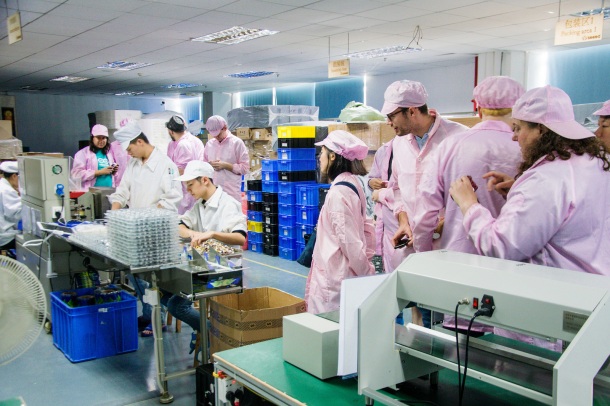In China there are already real AI farms, aimed at tagging databases to train algorithms. It could be the new factories in the country.
The times when China established itself as the world’s factory have changed. The manufacturing industry of the Asian giant is still thriving, but the first symptoms of a transition begin. In the future, the country could face a decline in its productive capacity and will have to compensate for it with something.
China has plenty of resources to make economic progress, although the crutch that the factories form will fail. The country has stimulated with incentives and abundant capital the creation of startups and scientific research. So much so that a study by the University of Michigan pointed out that in 2022 China could become the largest investor in science, a merit that the United States traditionally has indisputably.
The country has turned to artificial intelligence to create a new sector to boost the economy. So now there are huge facilities in China where a good number of people work in front of a computer. They’re AI farms, and their employees lay the foundation for the databases that will nurture artificial intelligence.
Employees of these facilities tag images, that serve to perfect algorithms such as those used by an autonomous car to know if what is in front of it is a bus or a fence. They also listen to audio recordings and transcribe them, thus helping voice recognition models.
They are repetitive jobs, like those in the factories that have driven the Chinese economy over the last few decades. They just don’t have the future so clear now. Rising wages in China make products less competitive and some manufacturers are already considering alternatives. Countries like Vietnam, India or Indonesia have started building industrial plants.

As for workers, AI farms they’re a better place to work. The activity takes place in offices instead of factories and employees avoid physical fatigue. Although for the eyes it is a considerably hard task.
The AI boost
The Asian country has launched a plan to lead the most sophisticated technologies, such as artificial intelligence, aeronautics or microchips. Their plans are to be the first in AI and innovation in general by 2030.
China is economically interested in boosting artificial intelligence. It is the commitment to the future, software versus hardware, production chains vs. AI farms. But there is also a geopolitical interest in leading the AI field. This technology will be applied to a huge number of areas and will provide competitive advantages to its supporters.
The Center for New American Security (CNAS) compared AI with electricity with combustion engine. These were technologies that offered great possibilities beyond a single sector. Its effects were deeply felt on productivity, just as expected from AI.
Images: Christoph Scholz, maltman23









